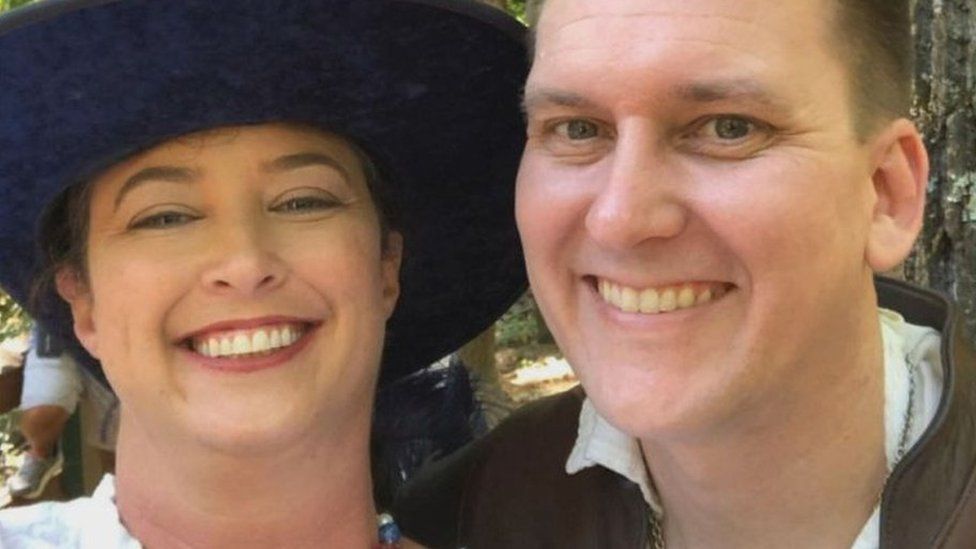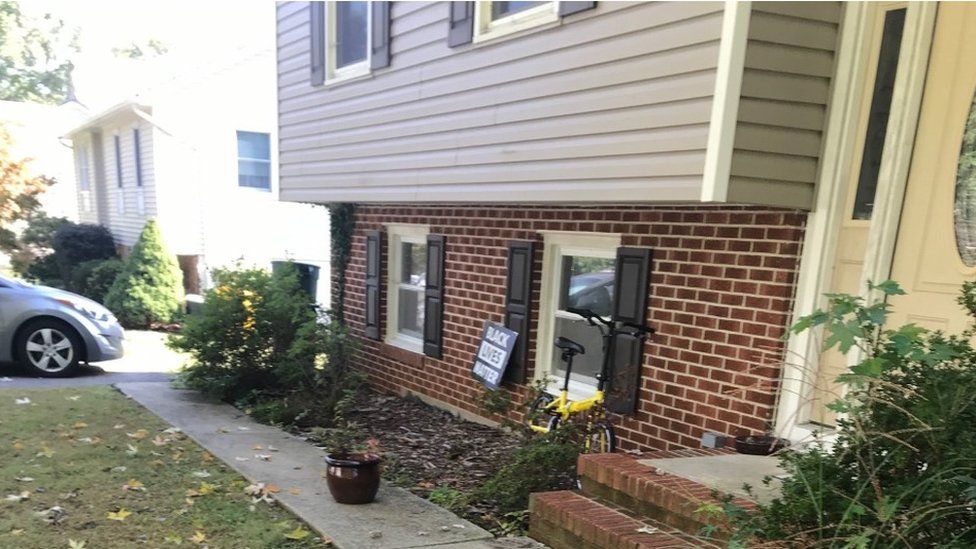
A US Navy engineer’s wife has pleaded guilty to helping her husband try to sell secrets about nuclear-powered submarines to a foreign country.
Diana Toebbe, 46, acted as a lookout while her husband left information at a “dead drop” spot, once hiding a data card inside a peanut butter sandwich.
A former teacher, she will go to prison for up to three years under her plea deal with federal prosecutors.
Her husband, Jonathan Toebbe, 42, pleaded guilty earlier this week.
Under his plea deal, he will receive a sentence of approximately 12-17 years.
Both of the Toebbes pleaded guilty in federal court in Martinsburg, West Virginia, to conspiring to communicate restricted data.

The crime carried the possibility of a life sentence.
Jonathan Toebbe was an expert in nuclear-propulsion systems on submarines, one of the nation’s most closely guarded secrets.
He tried to sell the information to a foreign government, sending messages to someone who he believed was a foreign official, according to the justice department. In fact, the individual was an undercover FBI agent.
Before their arrest in October, the Toebbes lived with their two children in a comfortably cluttered house with a wood stove, in Annapolis, Maryland, home of the US Naval Academy.
Diana Toebbe taught history and English at a private school.
Jonathan Toebbe had served in the Navy, then became a member of the military reserve. He worked in the office of the chief of naval operations in Arlington, Virginia. She has a PhD in anthropology from Emory University in Atlanta.
Prosecutors had argued the Toebbes were a flight risk, citing messages between the couple about quickly fleeing the US.
Diana Toebbe’s lawyers said those messages were about her dislike of then-President Trump and had nothing to do with the plot to sell classified information to a foreign nation.
For years, according to the investigators, Jonathan Toebbe collected information on nuclear submarines, smuggling documents out of work, a few pages at a time, so that he could get past security checkpoints.
“I was extremely careful to gather the files I possess slowly and naturally in the routine of my job, so nobody would suspect my plan,” he wrote to the investigator, the individual who he believed worked for the foreign government.
Toebbe, unaware that he had fallen into the trap, came to trust the investigator, and appeared to grow fond of them.

In one of the notes, Toebbe wrote about their friendship and his hopes for the future: “One day, when it is safe, perhaps two old friends will have a chance to stumble into each other at a cafe, share a bottle of wine and laugh over stories of their shared exploits.”
A plea bargain in this kind of case is unusual, but they can be reached. Federal investigators take these cases very seriously, say legal experts, yet they may be willing to support a lesser sentence for defendants in exchange for information from them.
Sometimes, says Daniel Richman, a Columbia law professor in New York, “prosecutors back off the maximum sentence for a defendant in order to get them to say things that might assist them in counterintelligence operations”.
In this case, the investigators certainly wanted to find something out from the defendants: Jonathan Toebbe had asked for $100,000, paid in cryptocurrency, according to an affidavit drawn up by the federal investigators, in exchange for the nuclear secrets.
As part of their plea deal, the Toebbes said that they would to help the FBI recover the cryptocurrency that was sent to them during the federal investigation that led to their arrest.


























